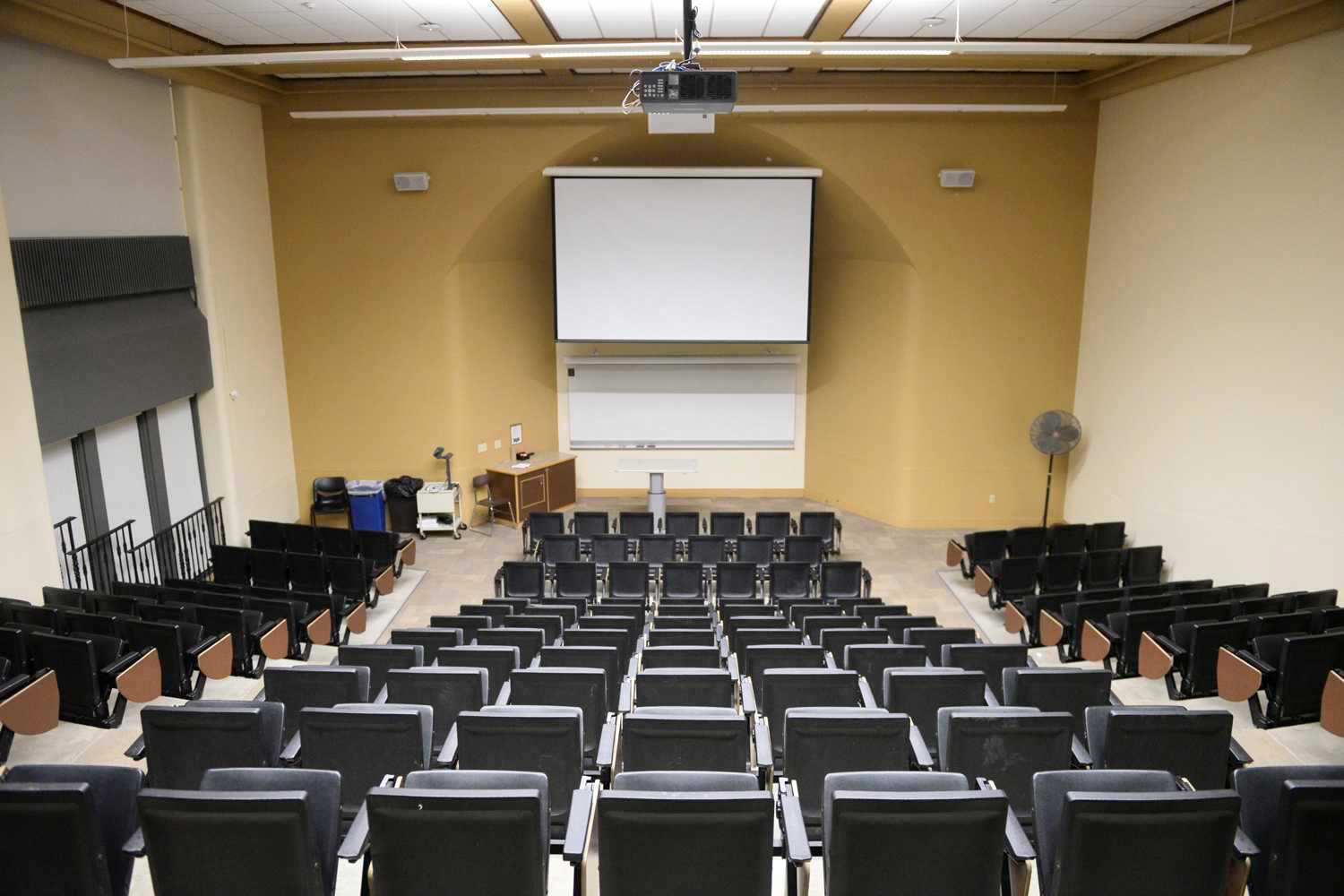Senate committee talks classroom utilization


Ensuring classes around campus are scheduled at the times requested by departments and placed in rooms that match their requirements is a delicate dance. And according to Christopher Coat, this challenge is only becoming tougher.
“Over the last five years, we’ve seen that more and more class sections are being added, but unfortunately we aren’t seeing an increase of classrooms to keep pace with this,” said Coat, the associate University registrar for academic support services. “We must be more efficient with our scheduling of classes.”
Pitt’s Senate Plant Utilization and Planning Committee held a remote meeting on Monday afternoon to discuss the efficiency of the University’s classroom utilization on campus. The committee’s primary purpose is to advise the University Senate on matters concerning the physical infrastructure of the University, from the construction of new buildings to the renovation and usage of old ones. Committee members connected to the meeting over Skype due to the University’s move to remote operations in order to limit the risk of spreading COVID-19.
Coat led the presentation, discussing the committee’s concerns over the efficiency of classroom use and scheduling — namely the number of vacant or underutilized classrooms on campus that could be potentially filled with classes that need rooms. According to the committee, the vacant classroom issue is tied to classrooms that have been reserved for specific departments not being utilized properly.
The registrar’s office, which manages the filing and scheduling of University classes, classifies classrooms in three different ways — those controlled by the registrar, which can be filled with any class, those controlled by departments, which can only be used at their assigned department’s discretion, and departmental-priority rooms, which can be reserved for use by a department up until a specific date. The majority of the larger classrooms on campus are department-controlled.
But Coat said departments are not required to fill the rooms they control before requesting registrar-controlled rooms, leading to a surplus of vacant rooms.
“It is possible for a department to ask for all their classes to be placed in registrar rooms, freeing up their departmental rooms,” Coat said. “We cannot stop that from occurring.”
The committee’s goal is to have as many rooms and as many seats being utilized as possible, 100% of the time. Realistically, their goal is to meet the nationwide average of 67% room and seat usage. Pitt’s numbers haven’t reached this goal yet, but they are moving toward it, according to the committee. According to registrar data, the University’s room usage is nearing this 67% benchmark, but the seat usage is trailing behind — around 67% of rooms are being used at a time, but they are not filled with classes that match their size.
Coat reviewed some of the issues faced by the registrar’s office in scheduling classes during the daily “critical window,” between 10 a.m. and 2 p.m., when most classes are taught. He said the office often has to turn down requests from professors requesting a class during this time.
“We’re finding this happening more and more,” Coat said. “The number of days we cannot place classes is creeping up every term.”
To improve efficiency, the committee is trying to make sure classrooms are filled with classes that match their size. They are also aiming to spread classes more throughout the day to avoid clogging up the critical window.
Irene Frieze, a faculty representative in the psychology department, said an agreement between faculty and the registrar’s office can be reached on classroom usage across campus, factoring in faculty meetings.
“If the University was to change its thinking on this, we could work out an agreement where certain days or certain times of the day are reserved for nonclassroom meetings, and the rest of the time is used for class,” Frieze said.
Kristin Gusten, the senior director of capital planning and physical resources for the provost’s office, said she was encouraged that there was support for adjusted classroom utilization across campus.
“I’m happy to hear that there is support among the group for this, and I wanted to let them know in my work with my department in planning, this is one of the issues we’re really looking at, and it’s gaining support,” Gusten said.
She added that the provost’s office is working to incorporate anticipated classroom needs in future building plans, such as those in the Campus Master Plan.
“It’s important as we plan new spaces,” Gusten said, “both to know that we’re adding the right types of spaces and also that when we add new classrooms to spaces that those classrooms then become a resource for the whole campus.”
Recent Posts
SGB addresses concerns about ICE presence on campus, hears SJP lawsuit against administration, approves governing code bill
At its weekly meeting on Tuesday at Nordy’s Place, Student Government Board heard concerns about…
ACLU of Pennsylvania sues Pitt over SJP suspension
The ACLU of Pennsylvania filed a federal civil lawsuit against the University of Pittsburgh and…
Marquan Pope: The ultimate shark
One of the most remarkable things about sharks is that an injury doesn’t deter them.…
Who Asked? // Do we really get a summer vacation?
This installment of Who Asked? by staff writer Brynn Murawski mourns the seemingly impossible perfect…
Notes From an Average Girl // Notes from my junior year
In this edition of Notes From an Average Girl, senior staff writer Madeline Milchman reflects…
Meaning at the Movies // The Power of the Movie Theater
In this edition of “Meaning at the Movies,” staff writer Lauren Deaton discusses her love…

